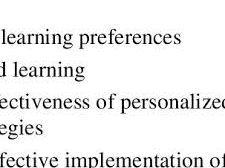Buying a used car is an exciting venture, but it comes with a set of uncertainties. What if the car was in an accident? Does it have a clean title? These questions can be answered by a valuable tool in the used car buyer’s arsenal – the Vehicle History Report (VHR). In this blog, we’ll delve into the significance of a comprehensive vehicle history report, exploring how it unravels a car’s past and empowers buyers with crucial insights.
- Decoding the VIN:
At the heart of every vehicle history report is the Vehicle Identification Number (VIN). This unique code is like a car’s fingerprint, holding key information about its origin, make, model, and more. The first step in understanding a vehicle’s history is decoding the VIN to unveil its story.
- Accident and Damage History:
One of the primary reasons to obtain a vehicle history report is to uncover any accident or damage history. The report aggregates data from various sources, including insurance companies and collision repair facilities, providing a comprehensive overview of the car’s past encounters with accidents or structural damage.
- Title Information:
A clean title is crucial for a used car’s value and reliability. A vehicle history report delves into the title history, revealing whether the car has a salvage title (indicating significant damage) or a clean title. Understanding the title status is vital in making an informed decision about the car’s overall condition.
- Odometer Rollback Detection:
The odometer reading is a critical factor in determining a vehicle’s value. A vehicle history report cross-references the recorded mileage with data from various sources to detect potential odometer rollbacks. This ensures that the mileage on the car is accurate, preventing deception about its true usage.
- Lemon Law and Recall Checks:
Vehicle history reports also include information about Lemon Law buybacks and recalls. Lemon Law buybacks indicate that a car had significant issues that couldn’t be resolved, while recall information highlights any manufacturer-issued recalls that may affect the vehicle’s safety and performance.
- Ownership History:
Understanding a car’s ownership history provides insights into its journey. A vehicle history report reveals the number of previous owners and the duration of ownership. Multiple owners in a short period may raise concerns, while a long-term owner history can be indicative of a well-maintained vehicle.
- Service and Maintenance Records:
Some vehicle history reports include service and maintenance records, shedding light on the car’s upkeep. Knowing whether the car received regular maintenance can impact its future reliability and potential repair costs.
- How to Obtain a Vehicle History Report:
Several online services offer vehicle history reports for a fee. To obtain one, provide the VIN of the car you’re interested in, and the report will be generated, providing a comprehensive overview of the vehicle’s past.
- Interpreting the Report:
Once you have the vehicle history report in hand, take the time to thoroughly review and interpret the information. Look for any red flags, such as frequent accidents, title issues, or odometer discrepancies. Consider the overall context and make an informed decision based on the report’s findings.
- Making Informed Decisions:
Armed with a comprehensive vehicle history report, you are now equipped to make informed decisions when buying a used car. The insights gained from the report allow you to assess the car’s condition, reliability, and value accurately, giving you confidence as you embark on your purchase.



